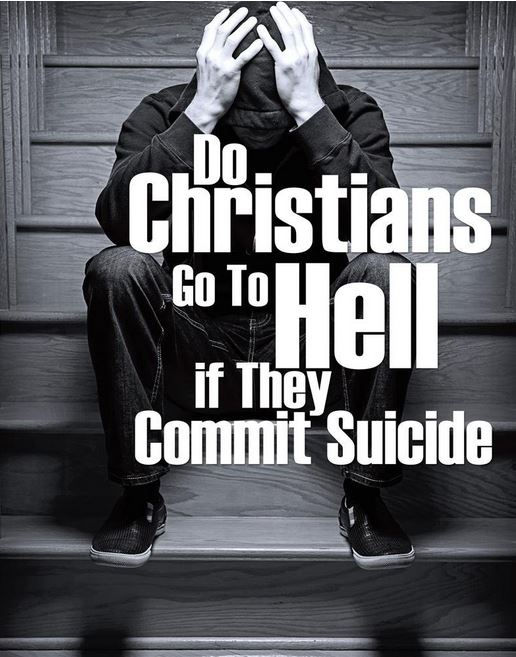Religion, Esotericism, and Suicide. 1. Religions Against Suicide
- 11. 9. 2025
- Minut čtení: 3
Almost all religions condemn suicide. Why, then, does “ritual” suicide also exist?
September 11, 2025
*A paper presented at the Occult Convention IV, Parma, September 6, 2025.
Article 1 of 5.
This series examines the sensitive and complex topic of the intersection between religion, esotericism, and suicide. It prompts us to confront challenging questions around life, death, belief, and agency with intellectual rigor and emotional maturity.
In most societies and religious traditions, suicide is seen as a tragic act linked to despair, mental illness, or social breakdown. Yet, historically and across cultures, there have been times when suicide has been accepted or even valorized—viewed as a noble sacrifice, a spiritual transition, or a protest against injustice. These acts are not solely personal but are embedded within systems of meaning that grant them theological, esoteric, and political significance.
This series does not aim to pass moral judgment. Instead, it seeks understanding by exploring how various religious and esoteric traditions interpret suicide, especially in ritualized or ideological contexts. We will analyze cases where suicide is seen as martyrdom, purification, transcendence, or resistance, and ask what it signifies when death is framed as a religious act.
Our inquiry will include ten case studies, illustrating different belief systems, circumstances, and choices—from ancient Jewish martyrdom at Masada to modern self-immolation by Buddhist monks, Jain fasting rituals, and 20th-century esoteric apocalyptic suicides. Additionally, we will explore suicide terrorism within radical Islamic contexts, using sociological and theological perspectives.
We will avoid simplistic labels like “cult,” opting instead to discuss movements, traditions, and belief systems to reflect their complexity.
This series is about more than suicide; it’s about how humans find meaning in life and death, how belief influences behavior profoundly, and how ritual and ideology can transform extreme acts into expressions of faith. Let’s start with a fundamental question: how do major world religions view suicide?
Suicide is widely condemned across major world religions. It is viewed as a violation of divine law, spiritual duty, and cosmic harmony. Here’s a brief overview of how this prohibition appears in key traditions.
Christianity
In Christian belief, life is a divine gift, and humans are custodians, not owners, of that gift. Suicide is considered a sin because it usurps divine authority over life and death. The early Church Fathers, such as Augustine and Aquinas, firmly condemned it. Aquinas argued that suicide contradicts natural law, harms the community, and offends God.
Historically, those who committed suicide were denied Christian burial, and their families faced social stigma. Although modern Christian denominations may show more compassion, acknowledging mental illness and distress, the core theological stance remains essentially unchanged.
Islam
Islam strictly condemns suicide. The Qur’an states: “Do not kill yourselves. Surely Allah is most merciful to you” (Qur’an 4:29). Hadith literature also warns against it, promising severe punishment in the afterlife.
The sanctity of life is fundamental in Islamic ethics. Life is a trust from God, who alone has the right to end it. Suicide is viewed as both a personal failure and a spiritual sin. This perspective adds complexity to phenomena like suicide terrorism, where self-inflicted death is sometimes framed as martyrdom.
Judaism
Judaism forbids suicide, seeing it as a breach of the commandment to preserve life. The Talmud declares that a person who takes their own life forfeits their chance in the world to come. Nonetheless, Jewish law is nuanced, with exceptions for martyrdom or extreme persecution.
The Masada example, which we will explore in the second article of this series, shows how Jewish communities have balanced religious law with existential threats. While generally condemned, acts of self-sacrifice for faith or dignity have been considered heroic.
Hinduism
Hinduism discourages suicide because of its karmic repercussions. Life is part of a cosmic cycle, and ending it prematurely disrupts one’s spiritual progress. Suicide can lead to negative karma and rebirth in lower realms.
Nevertheless, practices like Sati—where voluntary death was sometimes viewed as a religious duty—highlight the complexity within Hindu ethics, where dharma (duty) can sometimes override personal life.
Buddhism
Buddhism advocates mindfulness, compassion, and ending suffering. Suicide is generally discouraged because it stems from aversion and attachment—the two poisons in Buddhist philosophy. It also interrupts the journey toward enlightenment and generates negative karma.
However, some Buddhist monks have performed self-immolation as acts of protest or spiritual sacrifice. These acts challenge typical interpretations and invite reflection on suffering, intent, and moral choices.
Source: bitterwinter.org









Komentáře